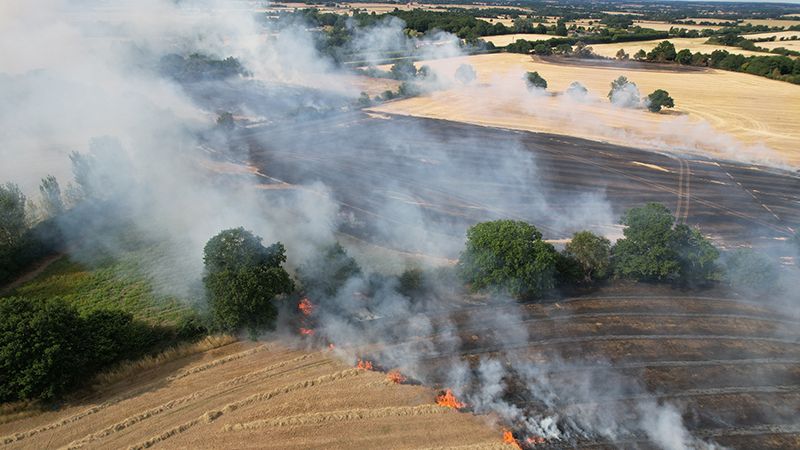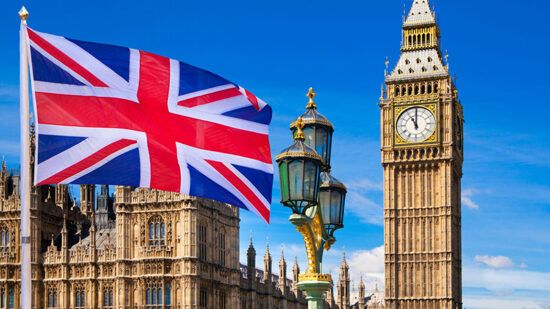Nature-related risks are as detrimental to the UK economy as those from climate risks, with deterioration of the natural environment potentially leading to an estimated 12% loss in GDP, according to the latest report from the Green Finance Institute (GFI).
By comparison, GFI said the 2008 financial crisis took around 5% off the value of UK GDP, while the Covid-19 pandemic cost the UK up to 11% of its GDP in 2020.
The report – Assessing the Materiality of Nature-Related Financial Risks for the UK – analyses the impact of the degradation of natural ecosystems, both domestically and internationally, on the economy and financial sector in the UK. This includes a new inventory that charts the risks to the economy, many of which are not currently captured in national risk assessments.
Risks in the inventory include: soil health decline; water shortages; global food security repercussions; zoonotic diseases that pass from animals to humans, like bird flu, swine flu and Covid-19; and antimicrobial resistance, where bacteria and viruses no longer respond to medicines; as well as transition and litigation risks.
The GFI and technical team also made several recommendations for the public and private sectors. These include disclosures of nature-related risks and taking urgent action to meet the targets included within the Global Biodiversity Framework.
The UK is one of the most nature-depleted countries in the world – three quarters of the UK has a high level of ecosystem degradation, with risks to financial services and the wider economy as a result.
Rhian-Mari Thomas, chief executive officer of the GFI, said: “For the first time, we now have the empirical evidence that nature-related risks are having a significant material impact on our economy and financial system. Not only that, but the impacts of these nature-related risks are commensurate with and exacerbate climate risks. This is a decisive moment and shows that we must start integrating these nature-related risks into financial risk management and investment decisions – to both reduce exposure and transition our economy to one that invests in the natural environment.”
‘A call to action’ for financial institutions
According to the report, some sectors in particular face higher levels of nature-related financial risk, such as agriculture, manufacturing, and utilities. For example, the agricultural sector faces risks associated with water, climate regulation, soil quality, and pollution which could impact food production. The utilities sector, meanwhile, is dependent on surface water for cooling power stations, and any constraint in water supplies could impede production and raise energy prices.
These impacts on the real economy are expected to have a material financial impact on banks and other financial institutions too. The analysis estimates that some banks could see reductions in the value of their domestic portfolios of up to 5% in some cases, noting that these estimates are likely to be conservative, indicating that nature-related risk will not just impact the economy, but potentially financial resilience.
Demonstrating the significance of the risks, these findings present “an opportunity for swift action”, the report concludes, from governments, central banks, regulators and the financial sector to proactively manage nature-related risks, positioning the UK as a global leader in addressing them.
Led by the GFI, the report was put together with input from the scientific and financial community, as well as direction from the Department for Environment, Food and Rural Affairs, HM Treasury and the Taskforce on Nature-related Financial Disclosures (TNFD), and input from the Financial Conduct Authority.
David Craig, chair of the TNFD, said: “I commend the technical team and the Green Finance Institute on this groundbreaking report. It illustrates the importance of addressing both nature and climate risks to the UK economy and financial system and is a call to action for UK financial institutions to take an integrated approach to transition planning and disclosures.”
Reacting to the report, Oscar Warwick Thompson, head of policy and regulatory affairs at UKSIF, said the findings are “alarming”, and have clear implications for their members and the wider financial services and investment industry.
“The potential damage to UK GDP and financial stability posed by nature risks like biodiversity loss could exceed those seen in the 2008 financial crisis. This underscores the urgency of policymakers, financial services, businesses and other actors quickly stepping up collective efforts in addressing these risks, including through better quality and decision-useful disclosures on nature. UKSIF applauds the report’s innovative methodology for assessing nature-related financial risks, which will be crucial for building a more sustainable financial system.”








